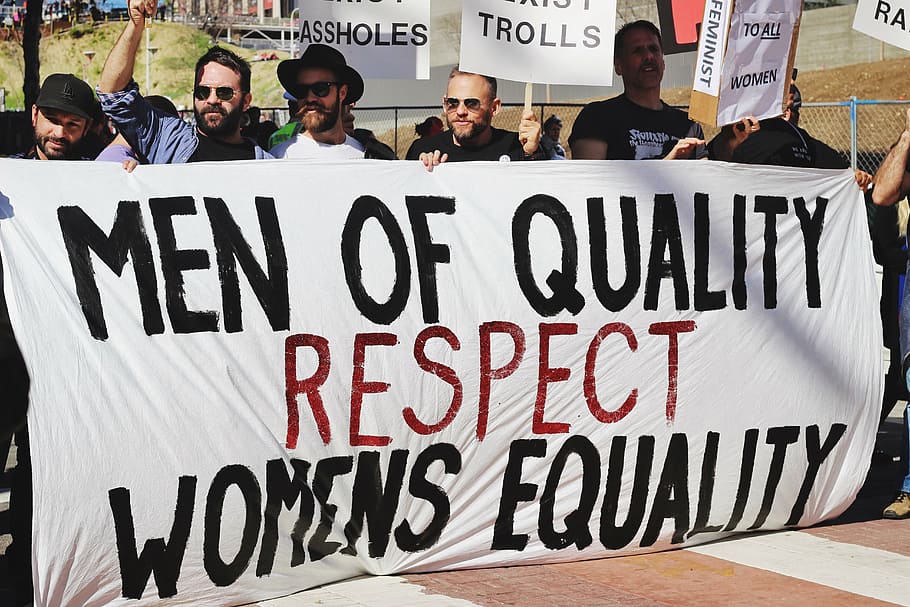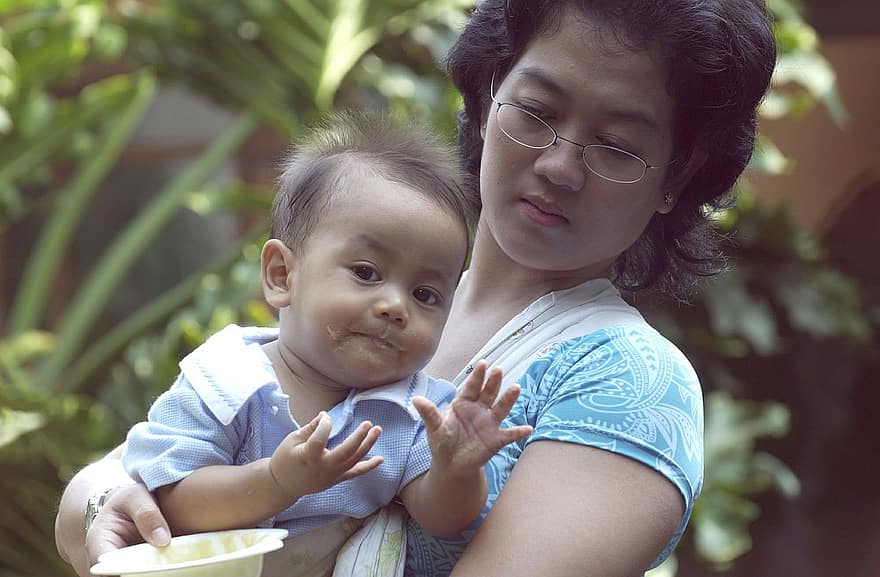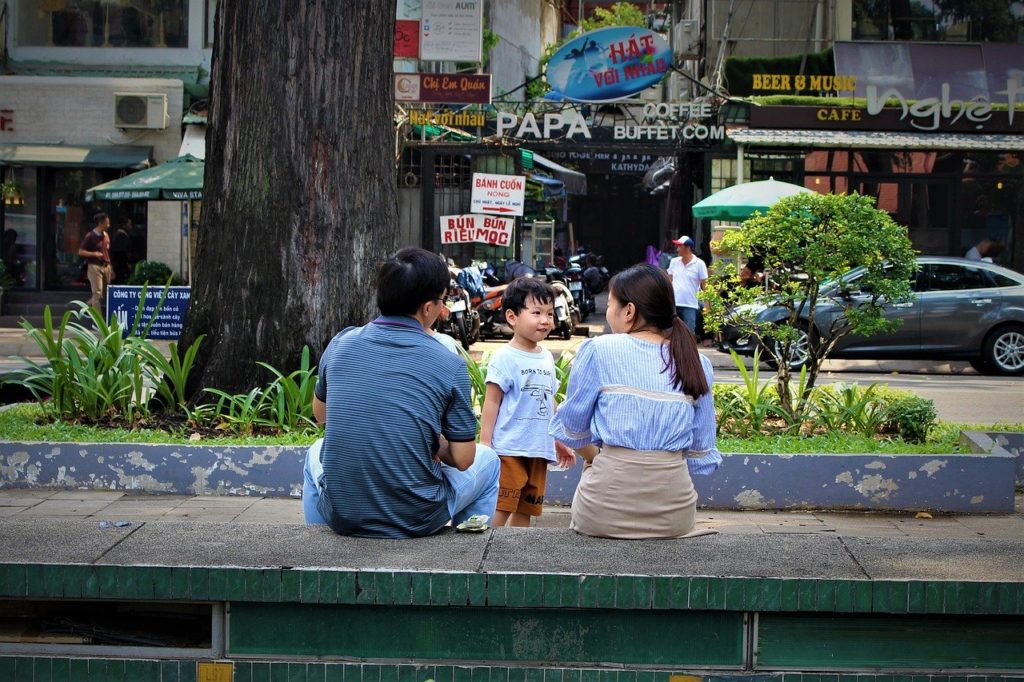Our concept of motherhood is often based on our experiences with our mothers. We grew up forming opinions about a mother’s duties and responsibilities, influenced by religion, culture, science, and literature. But, we live in a society of diverse traditions that sees the mother as part of a family. Therefore, we must share practical knowledge about the most crucial source of written information on the basic unit of society: The Family Code of the Philippines.
On July 6, 1987, then President Corazon Aquino signed Executive Order No. 209, otherwise known as the “Family Code of the Philippines.” It provided necessary revisions to Republic Act No. 386 or the “Civil Code of the Philippines.” It elaborates on marriage regulations, obligations of husband and wife, family, adoption, and parental authority.
By the end of this article, you will know how the Philippine civil law recognizes mothers. Also, understand how it resolves the conflict in the family home, and determines child custody and support. Preggy to Mommy believes that this will help increase your knowledge of the Family Code of the Philippines. We hope that this improves your decision-making in starting a family.
(AUTHOR’S NOTE: Reminder that this article does not qualify as legal advice. Only lawyers can give proper legal advice, and it’s best to consult a lawyer specializing in Family Law accordingly.)
Start with Why

Throughout reading this piece, you may realize that starting a family shouldn’t be this complicated. The truth is that you are not expected to entirely understand the law. But you have a right to know how it protects you. As a responsible Filipino citizen, you should also know how your legal obligations change once you become a parent. Asking yourself, “Why do I want to become a mother?” should also raise important questions on your priorities and goals in life.
Traditionally, the basic family unit consists of a father, mother, and child. In the Family Code of the Philippines, marriage is known as the foundation of the family. Without which there is no conjugal and family life. This means that the decision to become a parent is made by two individuals. This decision should have an exclusive contract uniting man and woman in marriage.
It sounds simple, but nowadays, non-traditional family setups exist. Unfortunately, the Family Code of the Philippines has yet to adapt. Single parenthood, cohabitation or live-in arrangements, blended families, and LGBTQ relationships; have become more common due to our social contexts’ dynamism. In this case, the decision to start a family becomes more complicated.
From Woman to Mother
Motherhood is the state or condition of having a child. It is not explicitly in the Family Code of the Philippines. But it states in Article 163, “The filiation of children may be by nature or by adoption.”

By Giving Birth
The most common journey to motherhood begins with pregnancy. Whether expected or entirely by surprise, it marks a new chapter in a woman’s life. Mothers try to remember the pain and discomfort of the first few weeks. Moms know that the baby’s development inside the womb causes pain. Still, the joy and fulfillment that replaces it when the child is born are unforgettable.
By Adopting a Child
Prospective parents can adopt through agencies or relatives within the 4th degree. The Department of Social Welfare and Development facilitates the adoption. But it is necessary that the adopters can assume all duties to exercise parental authority. Successful adoptions tell the story of a new form of parenthood. It is a manifest that parenthood may not be blood-related but done out of love nonetheless.
But is motherhood only about raising a child? In your own life experiences, there may be instances where you have assumed the role of a mother. Maybe as an older sibling, teacher, mentor, or friend. Even though the idea of a mother may be limited to the family, society, and culture norms have varying notions of a family where the members’ roles are more fluid. This is why motherhood is intuitive and natural for women. Yet, country laws like the Family Code of the Philippines raise important issues and highlight several challenges.
Legitimacy Concerns

The Family Code of the Philippines defines legitimate children as those “conceived or born during the marriage of parents,” as well as those “conceived as a result of artificial insemination of the wife with the sperm of the husband or that of a donor.”
On the other hand, illegitimate children are born to parents who are not married to each other at the time of birth. An illegitimate child follows the mother’s surname at birth and should be in the mother’s lawful custody. A provision in the Family Code of the Philippines supports legitimating children, whereby it only requires a valid marriage between parents.
Marriage is a permanent union as far as Philippine laws are concerned. As the only country in the world that bans divorce, the only way to end a marriage here is to prove that it did not happen. Nevertheless, a marriage annulment does not make your child illegitimate, since legitimacy concerns are relevant only in determining inheritance.
The Non-traditional Family Setups in the Philippines Today

Single Parents
In addition to the Family Code of the Philippines, there is another law that protects non-traditional families’ rights, particularly of single parents. Republic Act No. 8972, or the Solo Parents Welfare Act of 2000, was for the development of services and programs that benefit single parents and their children. The term “solo parent” refers to an individual who:
- gave birth because of rape or because of other crimes versus chastity (provided that the mother keeps the child)
- was widowed
- was left because the spouse is detained or convicted with a crime
- has the lone responsibility for the child because the spouse’s mentally incapacitated
- has custody of the children and legally separated
- had the marriage annulled
- was abandoned by the spouse (at least one year)
- is an unmarried parent (mother or father) who wants to keep the child
- gives support parental care to the child with, whether or not family-related
Solo parents have exclusive benefits, according to this law. The government provides counseling services, extra leave credits at work, livelihood, anti-discrimination, and flexible working hours. Other single parents also enjoy privileges that include priority for low-cost housing, medical assistance, and educational scholarships for their children.
Live-In Partners
Have you heard of the term “common law marriage”? Articles 147 and 148 in the Family Code of the Philippines recognize this as the union of partners who live exclusively with each other without marriage benefits. Its definition is a marriage based upon the agreement of two persons who both have the legal capacity to marry and cohabit to be husband and wife.

Some couples cite practical reasons for deciding to forego marriage, such as expensive church weddings and nonexistent divorce laws. Fortunately, the government provides social benefits to families in this setup, including 60-day maternity leave for unmarried mothers and personal income tax exemptions for dependent children.
The Family Code of the Philippines also provides that for unmarried live-in partners, properties bought or acquired during cohabitation are joint ownership. However, if one or both partners are legally married to another partner, the common-law wife or husband forfeits any claim to the partner’s properties, no matter how long they have been living together.
Same-Sex Relationships
The Family Code of the Philippines recognizes marriage between a man and a woman only. As of this writing, 29 out of 195 countries in the world legalize same-sex marriages, with the Netherlands being the first in 2001.
There are currently two relevant bills in the House of Representatives that support LGBTQ rights, namely House Bill No. 4982 or the “SOGIE Equality bill,” and House Bill No. 6595, also known as the “Civil Partnership bill.” Both bills aim to support the welfare of marginalized members of the LGBTQ community who are denied their rights and obligations.
Because the state does not recognize the LGBTQ community, families of same-sex couples cannot have conjugal ownership of properties purchased jointly. It’s also virtually impossible for them to have children due to legitimacy concerns in the Family Code of the Philippines.

Blended Families
If you’ve wondered why Cinderella has a stepmother, she likely has a blended family. In this unit, one or both parents have children from a previous relationship. Still, they have combined to form a new family. The situation commonly involves a single parent that remarries and takes along their first families to live with them.
Fairy tales and the media have painted a picture of a cruel, unjust, and jealous stepmother. While no two mothers or families are alike, caring for a child stays with whoever is in the family. It would be unfair to say that it is as simple as a transfer of parental authority, especially if the biological mother is still around.
Children suffer the most from their biological parents’ separation. According to the Family Code of the Philippines, children under seven years of age shall not be separated from the mother should the parents separate. This makes the role of a stepmother more complicated, especially when it involves custody, but it all starts with patience. Wanting to have a family entails significant sacrifices and a lot of hard work.
An Outdated Patriarchal Law?

The writing and revision of the Family Code of the Philippines was primarily for the benefit of the child’s welfare and rights. But then it needs updating. Modern families now look different. A piece of legislation written 33 years ago does not entirely govern emerging issues in society.
The Philippine Commission on Women published a policy brief on ensuring women’s equal rights in marriage and family relations by proposing amendments to the Family Code of the Philippines. Even though the law gives the same rights and obligations to fathers and mothers over their family relations, five article provisions explicitly favor patriarchal ethics in the Filipino traditions:
- Article 14 states that the order of obtaining consent to marry is as follows: father, mother, surviving parent or guardian, or persons having legal charge of them.
- Articles 96 and 124 states that while the husband and wife have equal rights in community property and conjugal partnership, the husband’s decision will prevail in case of disagreements.
- Articles 211 and 255 states that while the father and mother have equal rights on parental authority and legal guardianship of their children, the father’s decision shall prevail in case of disagreements.
The Family Code of the Philippines automatically gives power to the husband or father in deciding for the family, specifically in situations listed above. The wife or mother should to go to court if she opposes the decision. It costs a lot of money, patience, and is also a very impractical process.
The Mother’s Rights
As mothers, this is probably the most controversial part of the Family Code of the Philippines, discriminatory to women. Aren’t we fit to make sound judgment when it comes to family issues? Why does the law presume that the man knows the best thing to do for the family?

The word ‘patriarchy’ literally means “rule of the father,” from the ancient Greek. Men writing for the benefit of men influenced our knowledge about history. Men dominated what we know about laws, literature, religious texts, philosophy, and scientific findings. Historians say it is because education opportunities lean towards sons instead of daughters. This solidifies the idea that men are better than women, which can still be seen in our culture and societies today.
While the Family Code of the Philippines seeks to preserve harmony and peace in the family relations, the current version undermines the mother’s rights to decide alongside the father. Gender experts argue that the mother should be given the equal opportunity to prove that her opinion is practically helpful and beneficial for the family. If there are irreconcilable differences, then the judicial courts should decide based on the child’s best interest.
Decoding Parenthood in the Family Code of the Philippines
Parenthood and parental authority are not the same. The former describes the condition of being a parent, especially in biological terms. Parental authority, on the other hand, focuses more on your legal responsibilities to raising your child.

The law states that parental authority over children shall include caring for and rearing them for civic awareness and efficient development of their moral, mental, and physical character and well-being. Below is the list of rights and duties that parents and guardians have towards children according to Article 220 of the Family Code of the Philippines:
- Instruct, educate, and support, them by right and good example
- keep them company and provide for their needs
- give advice, love, counsel, affection, companionship and understanding
- provide with spiritual and moral guidance
- teach values such as integrity, self-reliance, honesty, self-discipline, thrift and industry,
- teach to comply with duties as citizens and to learn about civic affairs
- nourish with beneficial educational materials, monitor the recreation, activities, and association with others
- keep them away from bad company and protect them from getting into bad habits that may harm their morals, health, and studies
- stand for them in all matters that affects their interests
- demand respect and obedience
- impose discipline as needed under the circumstances
- do other duties as stated by the law upon parents and guardians
Is this a good laundry list of parenthood as lawfully recognized in the Philippines? Perhaps, but it is silly to assume that all types of families practice the same cultures and traditions. The government enforces the Family Code of the Philippines when families need guidance and support in settling matters concerning the state. The biggest one of which is child custody.

The Battle for Child Custody
Married couples who agree to a legal separation usually have multiple burdens, and nullifying the marriage contract is only half the battle. When there are children involved, the case becomes a custody dispute. It is up to the court to decide based on moral and social situations.
It is a painful process for the parents, but most notably for the child. Even though the general rule in awarding custody of the child under seven years old is to the mother, there are plenty of reasons why a parent can be deemed unsuitable. Some examples are abandonment, substance abuse, drug addiction, unemployment, and psychological illness.
According to Philippine law, you can end your marriage if you want to. Still, you cannot stop your moral obligation to support your children. In Articles 214 and 216 of the Family Code of the Philippines, there are explicit situations when grandparents can have a substitute parental authority over the grandchildren, followed by siblings over 21 years old and legal guardians of legal age.

Motherhood as a Never-Ending Journey
Family life in the Philippines is one of the most dynamic. A typical Filipino household can have three generations living under one roof, with extended aunts, uncles, and cousins as neighbors. As if this extended family isn’t enough, a person can have multiple sacramental godparents starting from baptism to marriage. Therefore, the image of a Filipino mother encompasses the home and usually extends to her various roles with relatives and the communities where she belongs.

What makes a woman unique? Biologically, your body holds the potential of expressing motherhood. Yet, it’s foolish to expect that you already know how to do motherhood right away. Your relationship with yourself determines your readiness for parenthood.
A woman’s body does not require her to give birth just because you have been given the body. Regardless of your civil obligations and family responsibilities, it is vital to accept that motherhood is a never-ending journey. Death may end a mother’s physical presence in this world, but the impacts of motherhood last multiple generations.
If there is an African proverb that summarizes the foundations of the Family Code of the Philippines, it would be this: “It takes a village to raise a child.” The law exists to maintain the best interests of the child. As a good Filipino citizen, you are to make decisions on your child’s behalf.
The duty and responsibility of giving birth to a baby mark the beginning, but mothers should also learn to rely on governments, societies, and immediate communities to help her care for the child. The Family Code of the Philippines exists to support mothers and families. Together with other laws, trust that the state continues to evolve its legal systems as we go through the stages of our journey in being a mother and starting a family.
Frequently Asked Questions (FAQs)
- What is known as the Family Code of the Philippines?
- What is Article 14 of the Family Code Philippines?
- What is Article 34 of the Family Code Philippines?
- What is EO 209 The Family Code of the Philippines?
- Who established the Family Code of the Philippines?
- What is Article 35 of the Family Code Philippines?
- What is Article 96 of the Family Code Philippines?
- What are the responsibilities of the parents according to the Family Code of the Philippines?
- What is Article 38 of the Family Code Philippines?
- What is Article 213 of the Family Code Philippines?


